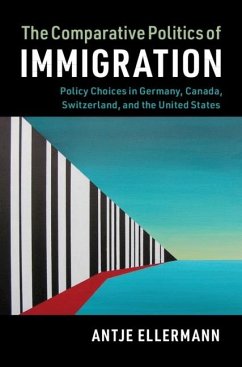Many governments face similar pressures surrounding the hotly debated topic of immigration. Yet, the disparate ways in which policy makers respond is striking. The Comparative Politics of Immigration explains why democratic governments adopt the immigration policies they do. Through an in-depth study of immigration politics in Germany, Canada, Switzerland, and the United States, Antje Ellermann examines the development of immigration policy from the postwar era to the present. The book presents a new theory of immigration policymaking grounded in the political insulation of policy makers. Three types of insulation shape the translation of immigration preference into policy: popular insulation from demands of the unorganized public, interest group insulation from the claims of organized lobbies, and diplomatic insulation from the lobbying of immigrant-sending states. Addressing the nuances in immigration reforms, Ellermann analyzes both institutional factors and policy actors' strategic decisions to account for cross-national and temporal variation.
Dieser Download kann aus rechtlichen Gründen nur mit Rechnungsadresse in A, B, BG, CY, CZ, D, DK, EW, E, FIN, F, GR, HR, H, IRL, I, LT, L, LR, M, NL, PL, P, R, S, SLO, SK ausgeliefert werden.









